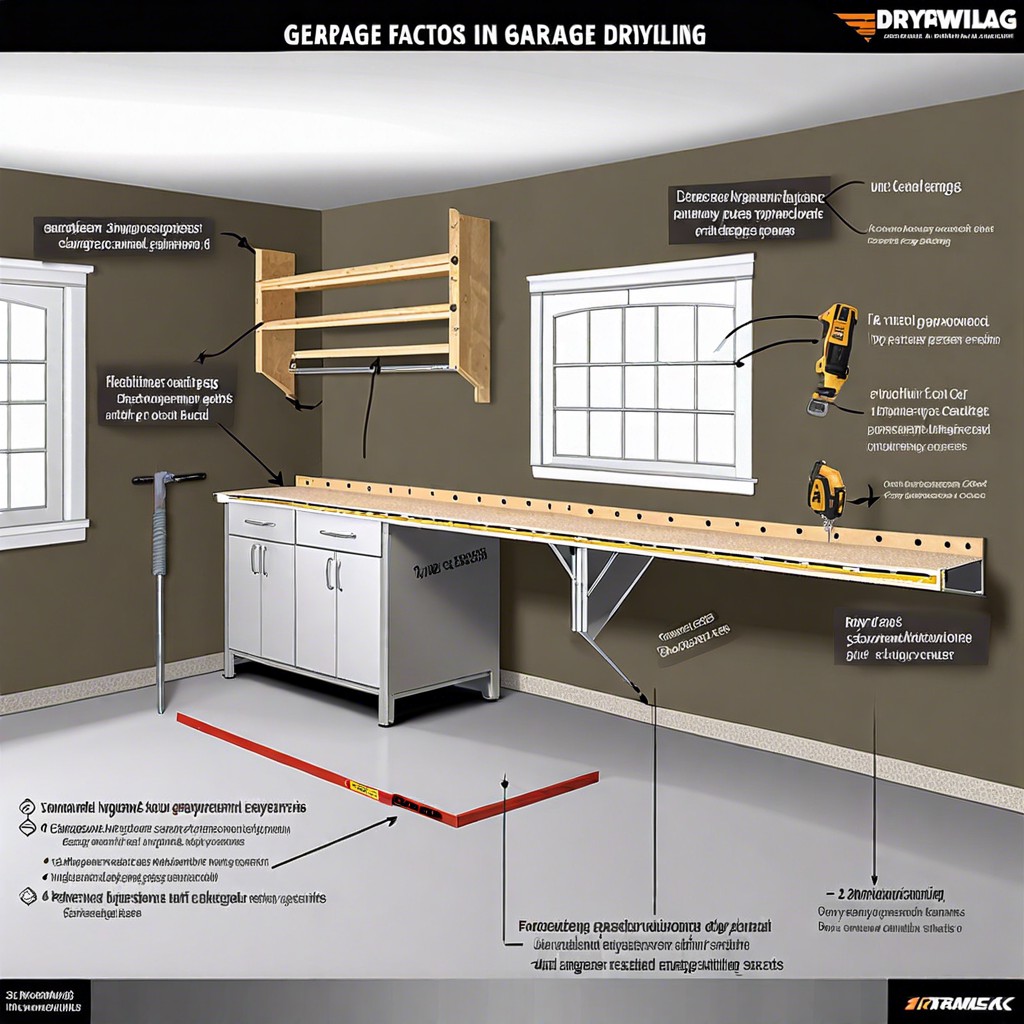Discover how much it typically costs to drywall a garage and what factors can affect the price.
Key takeaways:
- Garage size affects cost, bigger means more money.
- Odd shapes complicate installation, leading to higher costs.
- Drywall type varies in cost, fire-resistant costs more.
- Labor costs depend on professionals or DIY.
- Additional costs include insulation, electrical work, ventilation.
Key Cost Factors

First off, the size of your garage plays a huge role in the overall cost. A larger garage means more drywall, and more drywall means more money from your piggy bank. It’s straightforward math, but it’s worth noting!
Next, consider the shape of your garage. Odd shapes, nooks, and crannies can complicate the job, requiring additional cuts and more time to fit the drywall properly. Think of it like playing Tetris, but if you mess up, someone charges you extra.
The type and thickness of the drywall you choose also influence costs. Standard drywall is cheaper, but if you need fire-resistant or moisture-resistant drywall, expect to pay a bit more.
Labor costs are another factor. Are you going the DIY route, or hiring professionals? Pros come with expertise, but they also come with a bill.
Lastly, don’t forget about additional costs. Tools, tape, mud, screws – these extras add up faster than you can say, “Where did my budget go?”
Understanding these key factors helps in planning and avoiding surprises.
Garage Size and Shape
One of the key factors affecting the cost is the size and shape of your garage. Bigger garages obviously require more materials, but the shape can throw a curveball too.
Got an L-shaped garage? That’s extra corners and edges. More corners equal more cuts and fitting, which means more time and possibly higher labor costs.
Is your garage tall enough to play a casual game of basketball? The higher the walls, the more drywall you’ll need, and ladders or scaffolding might also be required.
Old garages with quirky designs like exposed beams or oddly placed windows can add to the complexity, and thus the cost.
Keep it simple, and your wallet will thank you. But keeping it simple wasn’t the motto when your garage was built? Expect some extra zeroes.
Drywall Type and Thickness
When it comes to choosing drywall for your garage, it’s a lot like shopping for candy—there are so many choices, and it can get overwhelming! First, think about thickness. Standard drywall is 1/2-inch, perfect for most garage walls. But, if you want something tougher, consider 5/8-inch. It’s like the superhero version of drywall—stronger, more soundproof, and fire-resistant.
Now, let’s talk types. Regular drywall is your budget-friendly option, great for everyday use. However, if your garage is prone to moisture, mold-resistant drywall is your best buddy. Planning to play mad scientist in your garage? Fire-resistant drywall (also known as Type X) can be a literal lifesaver.
In the name of practicality and durability, sometimes it’s worth spending a little more upfront. Remember, your garage might face temperature swings and the occasional basketball rebound, so choose wisely!
Labor Costs
Labor costs can take a nice chunk out of your wallet, but it’s the price of professional finesse (and keeping your weekends free). Here’s what to consider:
Geographic location: Prices vary widely by region. A drywall magician in LA will cost more than one in Smalltown, USA.
Experience level: Veterans of the drywall wars charge more, but they bring expertise and efficiency. They may also have stories of drywall mishaps that could make a sitcom.
Job complexity: High ceilings, odd angles, and other quirks will raise the labor cost. Drywalling a straightforward rectangle won’t be as pricey as that geodesic dome garage you’ve always dreamed of.
Preparation and cleanup: Moving junk out of the way and cleaning up afterwards can cost extra. So maybe tidy up a bit; it’ll save you some bucks. Plus, who doesn’t love a good excuse to declutter?
Quotes: Always get multiple quotes. It’s like a blind date; you don’t want to commit without exploring your options.
Hiring the pros can be worth the dough if you want a smooth finish without the DIY madness. Your garage—and your sanity—will thank you.
Additional Costs and Considerations
Besides the main expenses, keep an eye on sneaky additional costs. Insulation can sneak up on you, but it’s worth it—because unless you enjoy your garage turning into an icebox or a sauna, insulation can make a world of difference.
Electrical work might also come into play. If you need to move outlets around or add a few more for that fancy new power tool, that’s going to add some dough to the project.
Ventilation is another stealthy cost. Proper airflow is essential to prevent mold and keep the air fresh, which might mean some extra vents or a small exhaust fan.
Finally, don’t overlook finishing touches. Paint, primer, and maybe some trim will take your drywall job from “just okay” to “wow, this is actually a nice garage.”